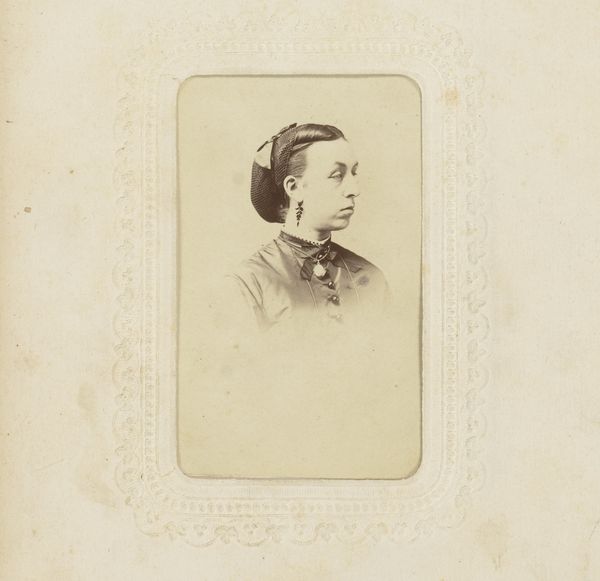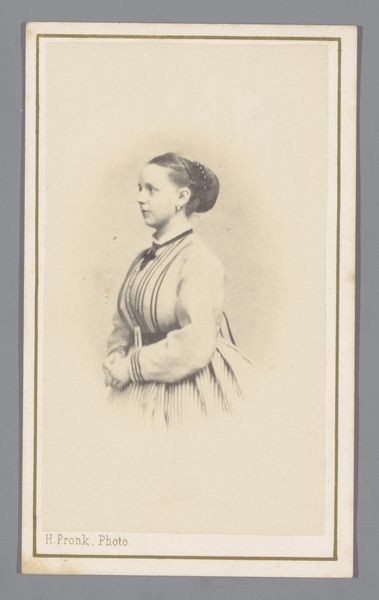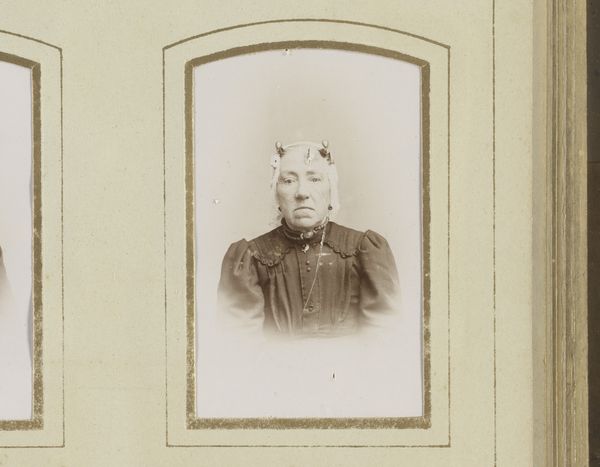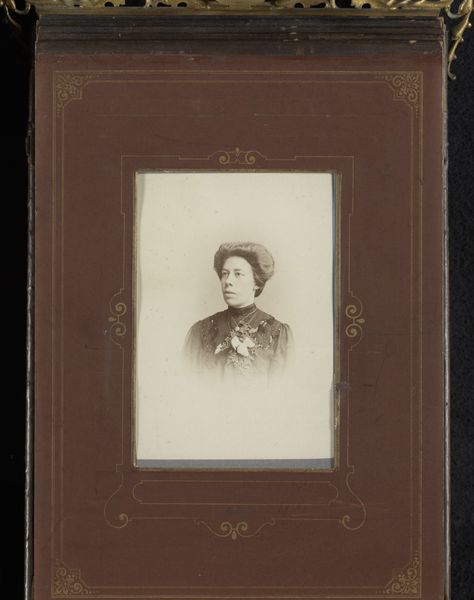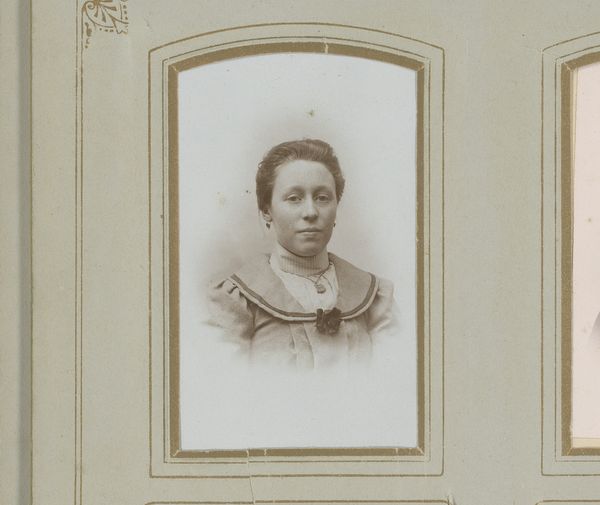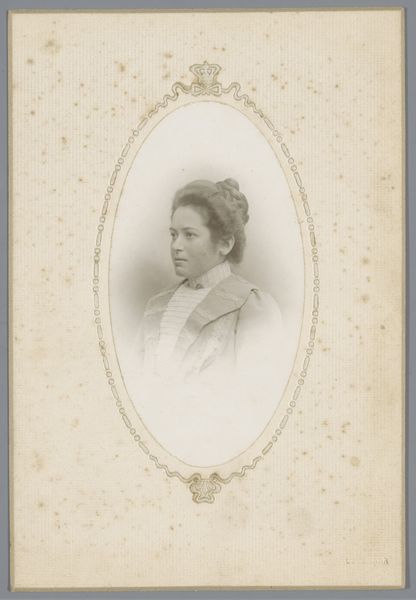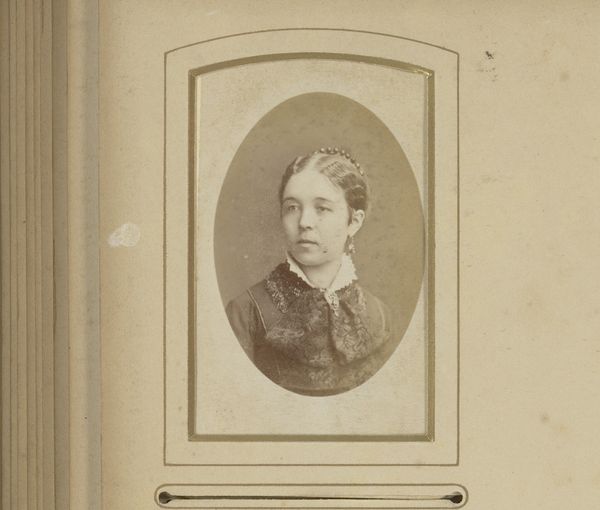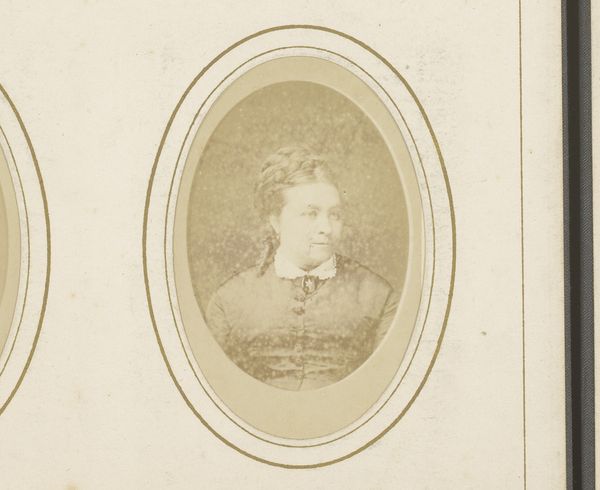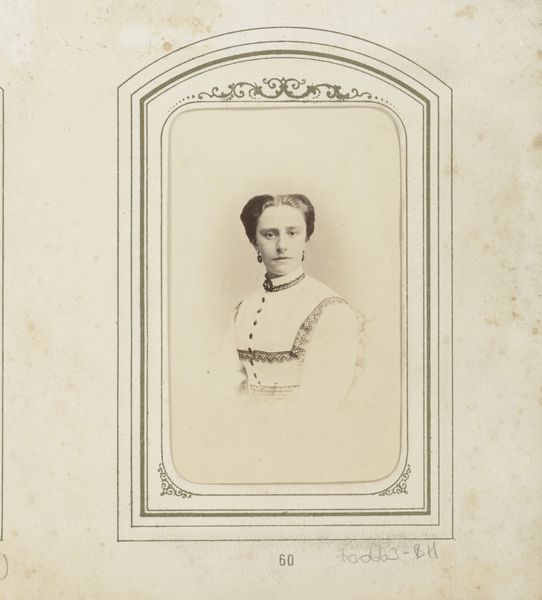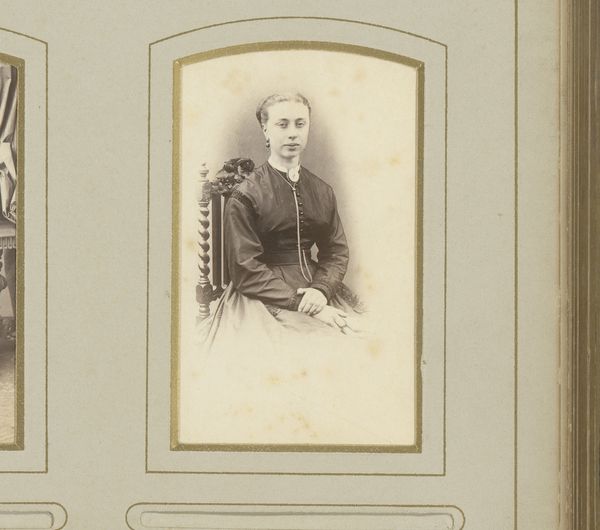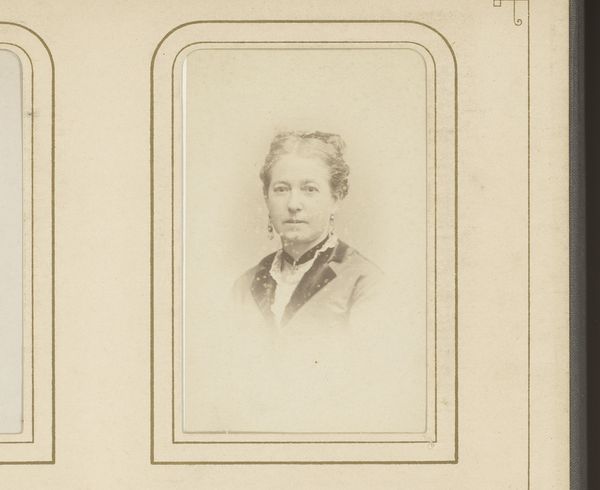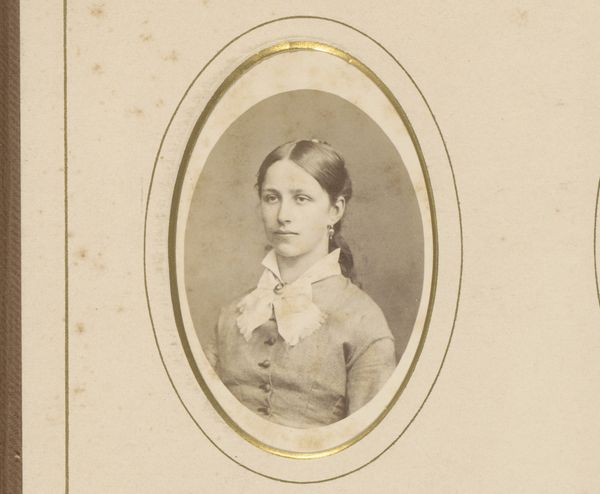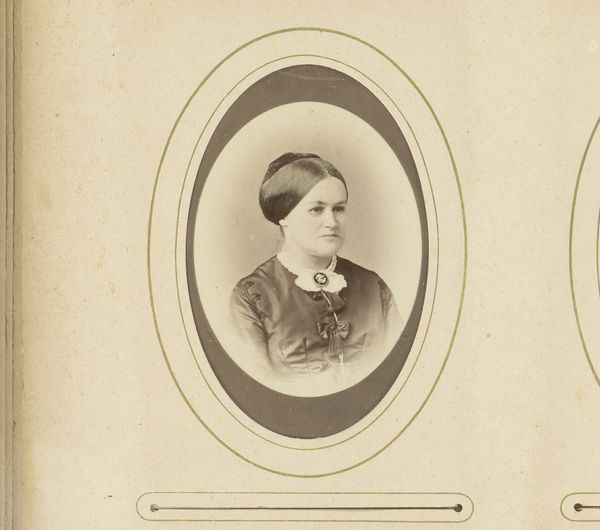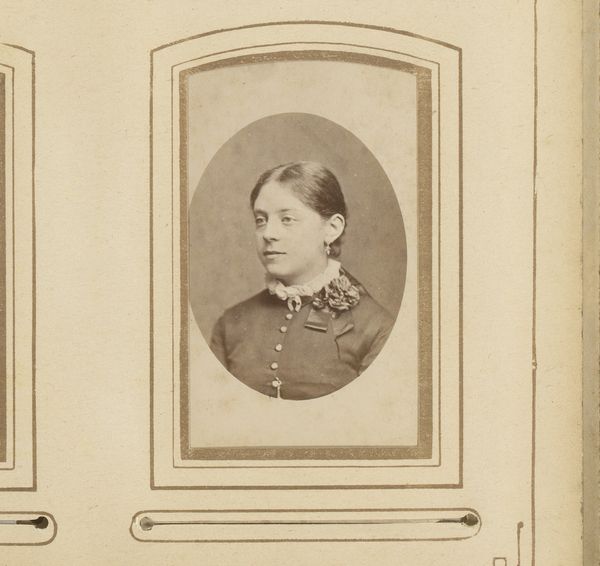
Dimensions: height 82 mm, width 50 mm
Copyright: Rijks Museum: Open Domain
Carl Philip Wollrabe captured this portrait of a woman in the mid-19th century, likely using the then-new technology of photography. Consider how the rise of photography democratized portraiture. Before, only the wealthy could afford to have their likeness painted, reinforcing social hierarchies. But now, a wider range of people could participate in visual culture. In many ways, this speaks to a burgeoning middle class, eager to participate in the customs of the elite. However, the very act of sitting for a portrait, even a photograph, carried its own set of social codes. The woman's modest dress and restrained pose speak to the expectations of female respectability in that period. Understanding art like this means delving into archives. Fashion magazines, etiquette manuals, and census records can reveal the unspoken rules and social structures that shaped not just the image, but the life of the sitter herself. Through this, art becomes more than just an object. It is a window into a particular moment in social history.
Comments
No comments
Be the first to comment and join the conversation on the ultimate creative platform.
